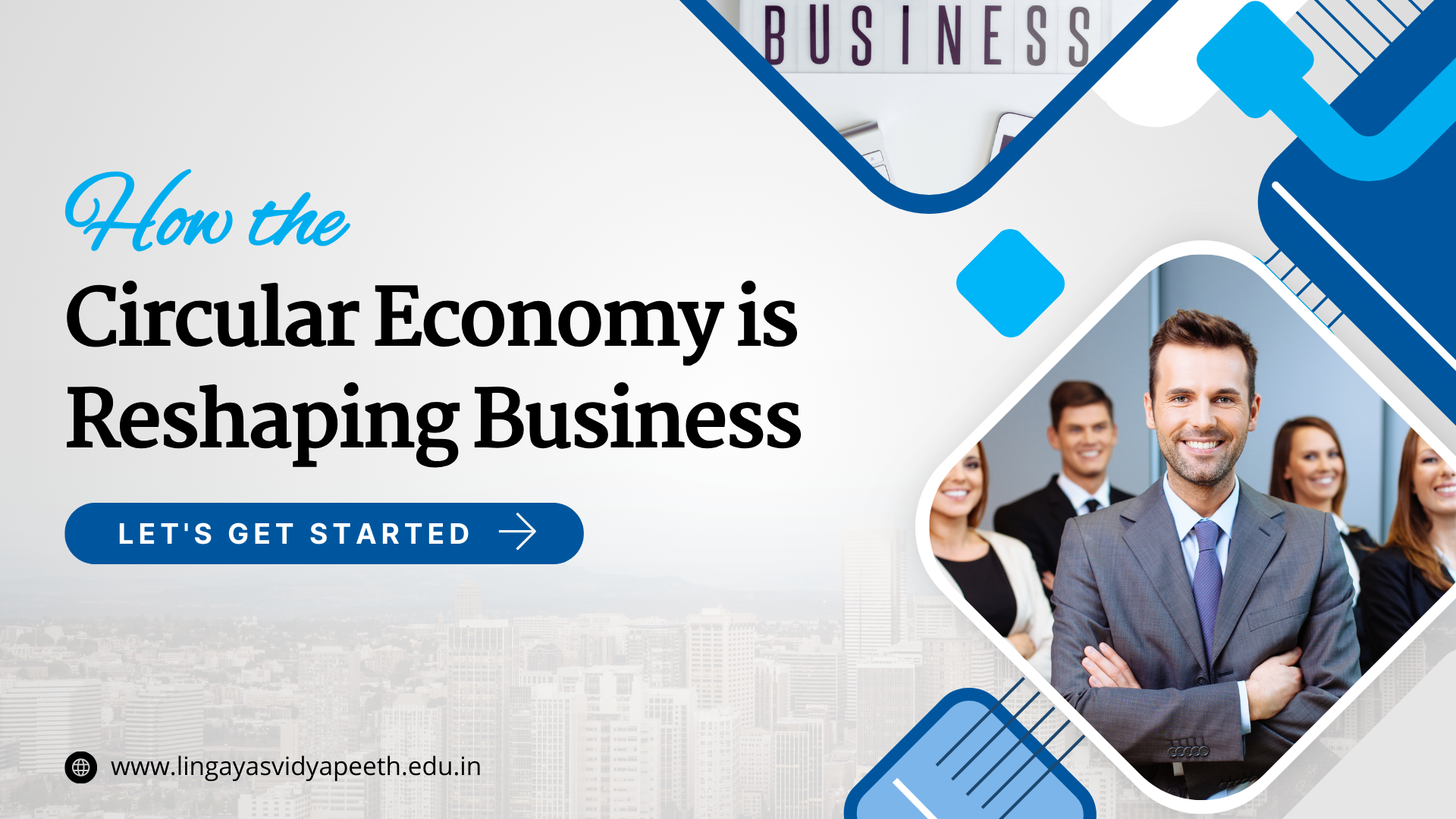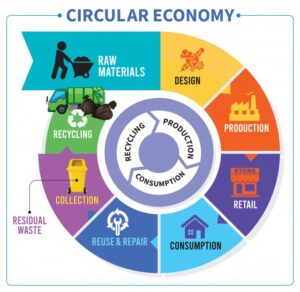Home » How the Circular Economy is Reshaping Business?

Circular economy is an economic system about creating a closed-loop system where products, materials, and resources are kept in circulation for as long as possible. This involves designing products with durability and recyclability in mind, minimizing waste generation, and maximizing resource efficiency throughout the product lifecycle.

Despite the potential benefits, the circular economy faces some challenges:
Conclusion:
The circular economy presents a compelling path towards a more sustainable future for businesses and the planet. By embracing circular principles, businesses can unlock new opportunities, enhance brand value, and contribute to a more responsible and efficient use of resources. As consumers, we can support businesses that prioritize circularity and adopt more responsible consumption habits. The circular economy is not just a trend; it’s a call to action for a more responsible and sustainable future for all.
For aspiring entrepreneurs looking to pursue business studies, Lingaya’s Vidyapeeth is the ideal destination. Renowned as the Best colleges in Faridabad for BBA and MBA programs, it offers comprehensive higher education for your entrepreneurial dreams.
From
Shivangi Priya
Research Assistant
School of Commerce and Management
Lingaya’s Vidyapeeth
Top BBA Colleges in Faridabad, Delhi NCR
RECENT POSTS
CATEGORIES
TAGS
Agriculture Agriculture future AI Architecture artificial intelligence Bachelor of Commerce BA English BA Psychology BTech AIML BTech CSE BTech cybersecurity BTech Engineering Business management career Career-Specific Education career guide career option career scope Civil engineering commerce and management Computer Science Computer science engineering Data science degree education Engineering Engineering students English Literature english program Fashion Design Fashion design course Higher Education Journalism journalism and mass communication law Law career Machine Learning mathematics MBA MBA specialization Mechanical Engineering Pharmacy Psychology Research and Development students
Lingaya's Vidyapeeth (LV) only conducts physical/online verification of any document related to examination on the following official email IDs:
It is important to note that the following email IDs and domains are fraudulent and do not belong to our university:
Please do not respond to or share any personal information with these fraudulent sources.